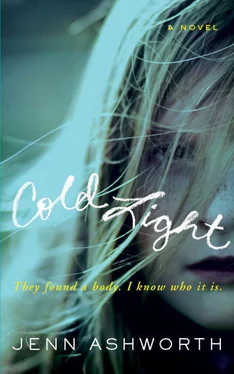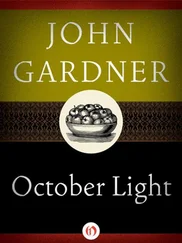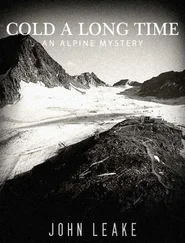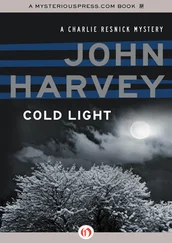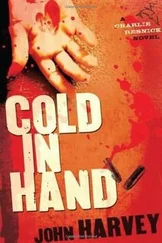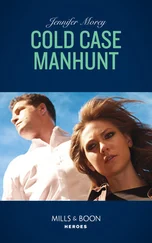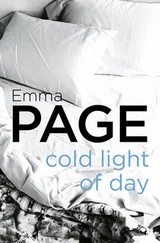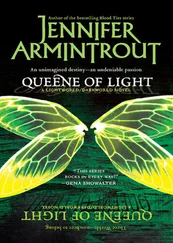I knew the report was going to be about Chloe as soon as I saw Terry’s tie. He didn’t skip to his chair, or do a run and slide over the shiny floor of the studio, as he sometimes did. But he’d walked soberly to his seat before and the news had been no worse than another fuel shortage, or a local carpeting firm going bust, or one more assault with a broken bottle and a bike chain in a pub car park. As I say, it was the tie. What other than a death – a pair of deaths, although it was Chloe’s that was important, because she was the blonde – would have induced Terry to wear a black tie on Valentine’s Day when Ladbrokes had him down at five to one for the ‘kiss me quick, untie me slowly’ design that Woolworths had been carrying with him in mind since Burns Night?
Barbara was in her bedroom. It didn’t matter how close to the television I sat: no one was going to stop me. The Marmite sandwich was my first and only meal that day – it was like I didn’t have a mother anymore. The Christmas tree was long gone, brown and bare and out in the garden, leaning against the back wall, but the odd needle from it was still caught in the carpet and something pricked the palm of the hand that I leaned on.
They showed her school photograph, with her hair Frenchplaited and tiny sapphire studs in her ears. Taken at the end of the summer, while she still had a tan and before she started getting thin.
I hardly listened to the bulletin. I could tell from the way his eyes were moving that Terry was reading from the autocue. He said polished, careful things like ‘local treasure’ and ‘tragic winter flower’ and ‘the heart-shattering sorrow of her parents, who will remember this season of love and romance with heavy hearts for as long as they both shall live’.
They showed pictures of the school, and the car park outside the nature reserve, and the pond. It looked the same. You couldn’t see the hole in the ice – just the trees, and lots of cars, and blue and white tape stretched between the bench and the railings.
Eventually, I realised what Terry was saying. Not only the words, but the implication of them. Chloe, apparently, had faded in front of her parents’ eyes after they had banned her from seeing Carl. Carl, who was not twenty-three, as we’d thought, but twenty-nine (and mourned by his mother who was in a wheelchair, and talked about how he always took her to the supermarket in his car, no matter what, and because of that, Terry made him out to be a hero), had given away a pair of expensive brown-envelope-coloured boots, and an almost new pair of jeans to a friend. And then he and Chloe had held hands and drank Cava and walked out onto the ice towards hypothermia, serious injury and certain death, because of their great and inordinate (which is not a word you hear on the news very much) love for each other.
A Valentine’s Day Suicide Pact. And the thing is, I thought, licking Marmite off my thumb and considering a banana for afters, that’s exactly the sort of overblown, influenced-by-television, schmaltzy gesture Chloe would make. The people who knew her were shocked, and they were sad, but they weren’t surprised.
It was a special extended programme: they cut into Family Fortunes and Terry Best interviewed various experts – including Patsy the school nurse. She tipsily gave five helpful hints to the parents of teenage girls, which were displayed on the screen behind her in courier font as she spoke. She seemed to think Chloe had died of an eating disorder because she talked a lot about the importance of making sure young girls didn’t feel self-conscious about their developing breasts and mistake the natural swellings (she sketched a shape in the air in front of her sweater) for unwanted weight gain. That was never Chloe’s problem.
I didn’t wonder about anything. I was waiting for something else to happen, something worse, or more important, but every time my mind skated forward to think about what it might be, a light went out and everything went dark and I couldn’t think about anything. The sensation was new and peculiar, but it has never quite left me.
I stared and I watched my television and I didn’t say anything to anyone.
It wasn’t long after that the interviews started. The photographs. The way they wanted me and Emma to tell them everything. I knew what they wanted to hear. We helped them make Chloe into who she is today.
When the spring came in proper the headmaster got someone to bulldoze up the cement courtyard at the front of the school and filled it with the yellow Juliet roses. The town has never stunk like it did in the late spring of 1998. Loads of people planted them and although now, ten years later, they are a lot less fashionable, you can still smell them occasionally.
In my dreams now it is always night and their soaked heads break the surface again and again. They want to float and my hands and arms are frozen with trying to push them back under.
Emma and I are opening the drawers in the tallboy in my bedroom. She’s sitting on the carpet next to me. I can smell her trainers and see the pattern on her socks out of the corner of my eye as I jiggle the sticky bottom drawer open. The grain of the carpet digs into my palms as I lean towards her. I feel young, hunched down on the floor with her like this. We might have been better friends, Emma and me, if it hadn’t been for Chloe.
‘Let’s have it all out then,’ she says.
The photographs of Chloe are tucked between folded jeans and sweatshirts and hiding under balls of socks and old scarves I’ve not worn in years. We lift out the clothes, throw them onto my bed or pile them on the floor, and excavate.
Here’s one of Chloe’s mittens. Here’s a homework diary, filled with her round, squat handwriting. A pink pot of raspberryripple-scented lip balm. A dangling cubic zirconia pendant. I wasn’t as bad at stealing things as Emma and Chloe thought I was. Emma looks at the objects, gathering them in a pile between her crossed legs as I hand them to her. Eventually, I have to go and find her a shoebox.
‘There’s so much of it,’ she says.
‘She used to stay over a lot,’ I say. ‘She spent half the summer living at my house. The other half, I was with her. I bet there was loads of my stuff round at her place too.’
I think of those lost objects. I try to count them, to list the spare socks and abandoned magazines. The notebooks and pens with moulded plastic tops in the shape of cats. I wonder if Amanda still has her things.
‘Come on,’ Emma says, and thrusts a pile of folded tee-shirts at me. ‘Put these up on your bed for the time being, we can put it all back after.’
Here’s an envelope stuffed with newspaper clippings. I hitch my finger under the flap but Emma shakes her head and holds out her hand.
‘You’ve read it all already,’ she says.
More. There’s the cord from her dressing gown. A stack of old tapes, a pair of headphones. I know I’m going to get to her mobile phone, but even as my hand brushes it and I see the cracked black plastic of the casing, I feel shocked. To Emma, it’s just a piece of broken equipment. It’s nothing. It’s not worth anything, not dangerous, not significant. I give it to her, my voice trapped inside it. It goes into the box.
‘There can’t be much more,’ she says.
I give Emma a photograph of Chloe that I took for Carl and kept for myself. She stares at it without embarrassment.
‘His mother must have known,’ she says, looking at Chloe leaning over the bed in her underwear.
‘His wheelchair-bound mother, who Carl, despite having a full-time job, drove to the supermarket each and every Sunday without fail.’ I’m quoting Terry, but Emma doesn’t know that and glances at me with a strange expression on her face. She’s staring at the Polaroid. Chloe’s face is a faded oval – there is no definition to her features except for the bright slash of lipstick around her mouth.
Читать дальше
